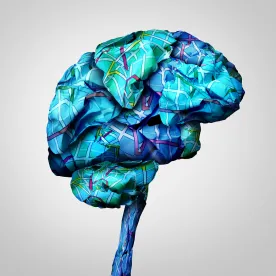According to a recent review study of Pubmed Central/National Library of Medicine databases, the pupillary light reflex provides an optimal opportunity to investigate mild traumatic brain injury (mTBI).
Based on the findings of the review, the pupillary system may provide a noninvasive “window” to mTBI, in terms of documenting its existence and the often-accompanying symptom of photosensitivity. When an individual experiences mTBI, visual dysfunction may occur, and the pupillary light reflex may be affected. Pupils are routinely assessed for abnormal size and responsivity to determine the neural integrity of the visual system. Investigating pupillary light reflex in the mTBI population, researchers found that pupillary response was significantly delayed, slowed, and reduced, symmetrically, with a smaller baseline diameter. These findings may indicate dysfunction of the pupillary pathway.
Several objective biomarkers for the presence of mTBI and photosensitivity provide further insight into neurological dysfunction. In mTBI, photosensitivity may be due to dysfunction in the baseline neural sensor. Photosensitivity as a perceptual phenomenon can be confirmed through objective, noninvasive, rapid, vision-based, pupillary biomarkers.
Pupillary light reflex in mTBI may be investigated with pupillometers to assess subtle abnormalities in pupil size as well as pupillary responses. The resulting information can provide diagnostic or prognostic indicators relating to the extent of the injury, and neurophysiological linkages. Pupillometers offer precise and extensive pupillary testing for the mTBI population, especially those individuals who experience photosensitivity. The major drawback is cost. Development of a more inexpensive hand-held pupillometer would help with diagnosis of mTBI and improve patient care.
With such instrumentation, pupillary light reflex could be used to investigate the possibility of a very early, acute-stage mTBI/concussion in emergency rooms, in the workplace, and even on the sideline of sports games. Such information can be relevant to a worker’s compensation determinations, social security disability determinations, and return-to-play/work/learn standards for both adults and children.



 />i
/>i

